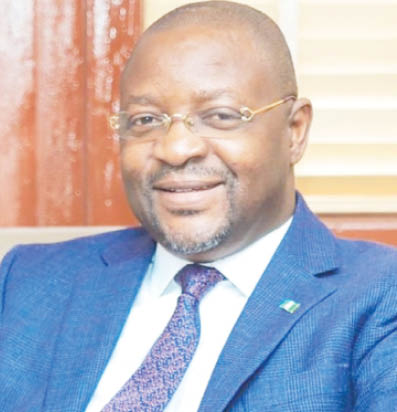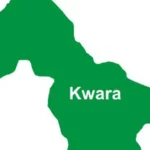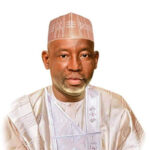Sports is a form of entertainment that brings people of different tribes, religions, ethnicities, race, class and even political ideology together. It gives all a sense of belonging hence, the saying: ‘sport is a unifying force’ is more of a reality than it is a statement. Sports is also a form of employment that provides legitimate means of livelihood and reduces the rate of social vices amongst youths by keeping them occupied in sporting activities.
Unfortunately, most developing countries and some African countries do not fully understand and appreciate the opportunities that are available in sports. In Nigeria for example, the music and film industry have blossomed far more than the sports industry even though they are all forms of entertainment. The question here is ‘why is the sports sector lagging behind? Could it be because it is seen as a recreational activity rather than a business venture?’
- Day Fulani renewed 160-year friendship with Lagos royal family
- Budget 2023: CSOs want more funding for family planning
However, in 2017, President Muhammadu Buhari pledged an all-time support for sporting activities in the country despite the dwindling economy. Over time, this pledge had manifested into measures, policies and programmes lined up to reposition the sports sector taking it to another level that will place Nigeria among the best sporting nations in the globe. In line with that, the Federal Executive Council recently approved the National Sports Industry Policy (NSIP).
The thrust areas of the NSIP are federations and athletes’ development; education, health, capacity development and training; inclusivity and social development in the community, provision of facilities and infrastructure; economic development, legislative environment and international relations; funding, finance and investment for sports and the digital economy.
This policy has some juicy incentives which include; tax exemption and rebate for a period of 5 years for investors in the value chain of sports; land provision and waiver for certain fees on lands meant for sports development; single digit loan interest rates for corporate organisations and private individuals investing in the sports value chain and independent government grant through the establishment of an Independent Athletes Welfare Fund(AWF) from which athletes representing the country can draw support for education and training.
It also includes application of the Renovate Operate Transfer (ROT), Build Operate and Transfer(BOT), Integrated National Financial Framework (INFF), Nigerian Integrated Infrastructure Master Plan (NIIMP) or any other innovative PPP financing model for the provision and rehabilitation of sports facilities in collaboration with the Ministry of Finance, Budget and National Planning and full operationalisation and enforcement of the Sports Code of Governance.
Furthermore, the policy outlines an effective means of improving the funding of sports, delineating the obligations of the different tiers of government, the participation of the private sector and other stakeholders in sports.
The NSIP has made sports the new gold in Nigeria and it will certainly launch the sports industry into a whole new era. Over time, talented Nigerians even without deliberate government support have emerged in the local scene by their own efforts so much that at different times, they have dominated the global space in the sports of their choice. How much more now that they have the backing and support of the federal government.
Thankfully, we have a government that is conscious of the potential in the sports industry. It is now being seen as principally an economic activity; an aspect of our national existence that adds to more possibilities in our Gross domestic product (GDP). It will also enhance the life of potential sports men and women who would have been abandoned to their fate as many have been abandoned through the years because of lack of access to support both at the institutional and cooperate level. With our more than 200million population and a deposit of vast talent in the country, this is like tapping into a natural resource and by extension adding to the livelihood of Nigerians and enhancing entertainment.
What the federal government is trying to achieve through this policy is a good, strong domestic industry which forms the bases to build a good strong global brand. With this motion in play, the successes we’ve recorded so far will be just a fraction of what we are expecting.
Solomon Dalung in 2017, as the then minister of Youth and Sports, foresaw this when he noted that “Sports can move Nigeria out of recession; provide employment, stand out as foreign exchange earner and can help build tourism base. If money is invested in sports, it will take many youths off the streets and serve as a unifying factor’’. This is where the NSIP is driving to.
Few days ago, President Muhammadu Buhari at the just concluded Africa Investment Forum Market Days 2022 with the theme: ‘Economic Resilience Through Sustainable Investments’’ in Abidjan, Cote D’ Ivoire, said the Nigeria Agenda 2050 was government’s long term plan, and that part of the goals was turning sports into a business. He explained that his administration was taking steps at refocusing sports in Nigeria, making it one of the major revenue earners for the country’s economy.
President Buhari further noted that the sports industry has an expansive value chain that is capable of creating employment opportunities, transforming the economy and accelerating the economic prosperity of the country. The good news is that the targets this administration has set for the sports ministry is within the medium term plan 2021 to 2025, “so within up to 2025, we must have been able to push sports into the business arena”.
The government has gone all out to fully reposition the sports industry and redefine it as a business. We are getting somewhere but we can get there faster if the private sector, sports stakeholders, sponsors and the international community all get involved to respond to the emerging opportunities.
Ijanada writes in via [email protected]

 Join Daily Trust WhatsApp Community For Quick Access To News and Happenings Around You.
Join Daily Trust WhatsApp Community For Quick Access To News and Happenings Around You.

